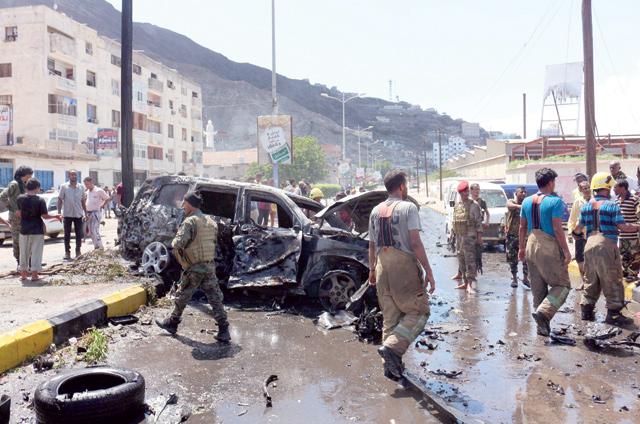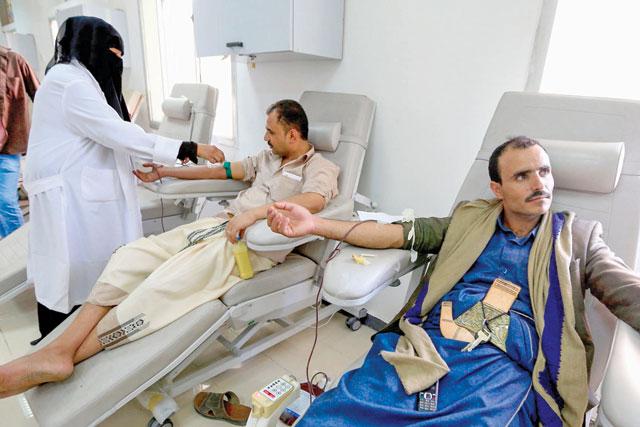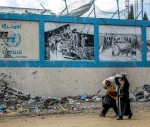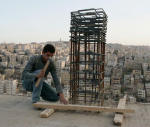You are here
South Yemen separatists pin down government in de facto capital
By AFP - Jan 31,2018 - Last updated at Jan 31,2018
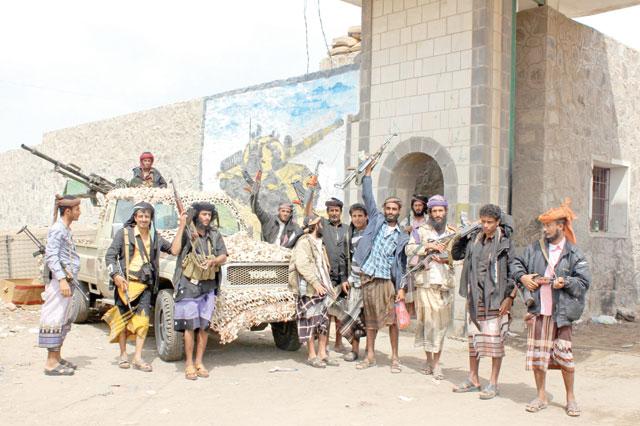
Fighters from the separatist Southern Transitional Council stand at the entrance of a military camp after they took control of the pro-government position in the Dar Saad district, in the north of Aden, on Wednesday (AFP photo)
ADEN — Yemeni ministers were holed up in Aden's presidential palace on Wednesday after separatist forces seized effective control of the southern port city, dealing another blow to the country's embattled government.
Pro-separatist forces, known as the "security belt", fanned out across the city — the country's de facto capital — after three days of fighting that left 38 people dead.
The United Arab Emirates and Saudi Arabia have backed the beleaguered government of President Abed Rabbo Mansour Hadi since intervening against Shiite Houthi rebels in Yemen's civil war in March 2015.
But the Arab allies, whose military coalition was launched to roll back rebel gains and restore Yemen's "legitimate" government to power in Sanaa, have not intervened to prop up Hadi against his separatist rivals.
The coalition has instead urged the separatists to exercise restraint and called on the government to weigh up the demands of its rivals.
While Yemen's president resides in the Saudi capital, the infighting in the anti-Houthi camp has left Prime Minister Ahmed Bin Dagher and a number of senior government figures holed up in the Aden presidential palace.
A high-ranking military source said the separatists had also taken over the Bin Dagher's office chief overnight. By Wednesday morning, the clashes appeared to subside.
A refuge 'shattered'
The United Nations raised alarm bells Wednesday over the impact of the violent standoff on more than 40,000 Yemenis recently displaced to Aden, and now cut off from aid.
“UNHCR emergency aid distributions and humanitarian assessments planned this week for vulnerable, displaced Yemenis have now been postponed and UNHCR humanitarian cargo remains at Aden port unable to be released,” the UN refugee agency (UNHCR) said via Twitter.
“We are also particularly concerned for those newly displaced in Aden who have fled other areas in Yemen. More than 40,000 people fled to Aden and nearby governorates since December and we anticipate more displacement as people continue to flee from hostilities in the west coast.”
At least 38 people have been killed and 222 wounded in Aden since Sunday, according to the International Committee of the Red Cross.
The separatists, who for months have pushed for the reinstatement of South Yemen as an independent country, now control most of the city.
Since 2015, Aden had served as a refuge for tens of thousands of Yemenis fleeing conflict in their hometowns across the country, as the Saudi-backed government battled Houthi rebels allied with Iran.
A coalition offensive along the Red Sea coast has sent new waves of displaced to the government’s de facto capital in recent weeks.
Save the Children on Tuesday said it was also suspending work in Aden out of fear for the safety of its staff in what the agency called the “shattered” former refuge.
Demand for self-rule
Separatists, mainly based in Aden, have gained traction since April in their push for self-rule, demanding the reinstatement of South Yemen under a self-proclaimed Southern Transitional Council (STC).
Before the fighting broke out, the STC had called on Hadi to make changes to his government, accusing it of corruption and mismanagement.
The clashes have sparked fears of a repeat of South Yemen’s 1986 civil war, a failed socialist coup which killed thousands in just six days and helped pave the way for the 1991 unification of South and North Yemen.
The separatists, who enjoy popular support and are backed by some regular troops, have rapidly gained control over all but one district in Aden since Sunday.
The Saudi-led coalition said it would take “all necessary steps to restore security” in Aden but has not intervened on the government’s behalf.
The UAE — a pillar of the coalition — has close ties to separatist leader Hani Bin Breik while its “security belt” force backs the STC.
A Yemeni government source said the coalition had, however, secured guarantees the separatists would not storm the presidential palace in Aden.
More than 9,200 Yemenis have been killed since the coalition intervened in the war three years ago, triggering what the UN has called the world’s largest humanitarian disaster.
The coalition’s original mission of rolling back Houthi gains has expanded to include fighting extremist groups that have flourished during the war, and now keeping the peace between its allies on the ground.
Related Articles
ADEN — Separatists in war-ravaged Yemen have surrounded the presidential palace in the government’s de facto capital Aden, moving closer on
ADEN — Six people were killed on Sunday in a car-bomb attack targeting the governor of Aden, the seat of Yemen's internationally recognised
RIYADH — Saudi Arabia and the United Arab Emirates renewed a call on Monday for peace talks between Yemen's government and southern separati



